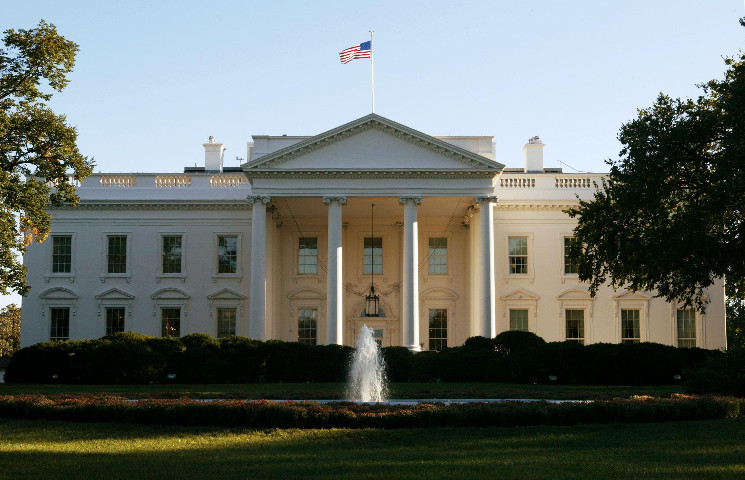Crypto Election Spending May (Or May Not) Play Out How Industry Advocates Hope

As the 2024 Presidential Election has solidified itself, with both the Democratic and Republication conventions ending with the finalization of respective nominees, the race to the White House is kicking into high gear. One aspect, among the many headlines and policy disagreements that have emerged, that continues to make headlines are the overtures being made toward the crypto industry. Former President and current candidate Trump has openly embraced the crypto industry, both by accepting crypto contributions as well as headlining Bitcoin 2024 this past July. Vice-President and candidate Harris has also made a pivot toward the crypto sector since announcing her bid for the White House, highlighted by the Crypto4Harris events and supporters seeking to solidify support.
These headline making efforts and outreach are only part of the conversation, however, with Senate Majority Leader Schumer indicating his desire and optimism regarding the passage of comprehensive crypto legislation by the end of 2024. These statements follow efforts earlier in 2024 by Congress to repudiate SAB 121, the passage of FIT21 in the House, and the multiple stablecoin-focused bills that have been put forward recently. Last, but certainly not least is the estimated $129 million – highlighted by FairshakePAC – that the crypto industry has spent in lobbying efforts , second only to the fossil fuel lobby.
Making crypto a policy conversation is a solid move by the sector and the lobbyists working on behalf of crypto firms, but as the election cycle continues and concludes in November, some of these firms and advocates might be surprised by the outcomes.
Legislation Will Be Imperfect
While certain areas of the crypto industry have long been advocating, in some variation, for fair, effective, and consistent regulation, the reality has been a mish-mash of legal actions, tax updates, and a singular accounting standard from the Financial Accounting Standards Board. By setting crypto firmly at the center of what is looking like another contentious U.S. Presidential race, the risk is that both sides will seek to be seen as “taking action” on crypto. With Senate Majority leader Schumer publicly stating his desire to see comprehensive legislation by the end of 2024, the risk of rushed and incomplete legislation continues to grow.
Some regulation and guardrails is better than no regulation, but the crypto industry should remember the lessons (that should have been) learned from the debacle that was FTX. Donating large sums to money to politicians and political campaigns is a high-risk, high-reward tactic, and being seen as overly influencing legislation can have negative implications in the longer-term. Conversely, there is also the risk that political winds will have an outsized impact on the legislative process versus the policy needs of the sector. Additionally, there is the risk that legislation rushed for political purposes will create more problems than it purportedly solves.
Politicizing An Industry Invites Risk
Building on the first point, the crypto sector (with reason) has spent several years stating that that Biden White House has been anti-crypto, along with emphasizing the antagonistic positions of regulatory agencies, specifically the SEC. As the crypto sector has continued to evolve and mature, attracting capital and attention from the TradFi space as well as policymakers, the risk is that the industry becomes yet another political talking point. While on the surface both major political parties have pivoted to more of a pro-crypto position, the reality is that the operating environment for crypto-native firms and aspiring entrepreneurs remains costly and complicated.
Much like how the ESG movement has found itself in the policy spotlight recently, the upswing of attention and politically-oriented dollars flowing to crypto risks overshadowing the very real challenges still facing organizations in the space. Crypto advocates and investors, while appreciating the attention and focus that these issues are now receiving, should be aware of the possibility that – after the election – crypto issues and organizations could find themselves divided along partisan lines, or be reduced to political talking points versus constructive policy conversations.
It is no secret that crypto has become a major talking point for both political parties as the Presidential election cycle kicks into high gear, but for every conference presentation or industry roundtable, investors and advocates should keep in mind the risks of such activities. Having the ear of policymakers and regulators is most definitely a net positive for the space, but being seen as a partisan issue or (potentially) another gimmick in the toolbox of politicians is cause for pause.
Big spending and lobbying has certainly brought crypto to the attention of virtually every decision maker in the American political landscape, but advocates and entrepreneurs should exercise caution before depending on this attention to deliver comprehensive, objective, and pro-growth policies.




 Bitcoin
Bitcoin  Ethereum
Ethereum  Tether
Tether  Dogecoin
Dogecoin  USDC
USDC  Cardano
Cardano  TRON
TRON  Chainlink
Chainlink  Stellar
Stellar  Hedera
Hedera  Bitcoin Cash
Bitcoin Cash  LEO Token
LEO Token  Litecoin
Litecoin  Cronos
Cronos  Ethereum Classic
Ethereum Classic  Monero
Monero  Dai
Dai  Algorand
Algorand  OKB
OKB  Cosmos Hub
Cosmos Hub  Stacks
Stacks  Theta Network
Theta Network  Gate
Gate  Maker
Maker  Tezos
Tezos  KuCoin
KuCoin  IOTA
IOTA  NEO
NEO  Zcash
Zcash  Polygon
Polygon  Synthetix Network
Synthetix Network  Tether Gold
Tether Gold  TrueUSD
TrueUSD  Dash
Dash  Holo
Holo  Zilliqa
Zilliqa  Enjin Coin
Enjin Coin  0x Protocol
0x Protocol  Qtum
Qtum  Siacoin
Siacoin  Basic Attention
Basic Attention  Ravencoin
Ravencoin  Bitcoin Gold
Bitcoin Gold  Decred
Decred  NEM
NEM  DigiByte
DigiByte  Ontology
Ontology  Nano
Nano  Hive
Hive  Status
Status  Waves
Waves  Huobi
Huobi  Lisk
Lisk  Numeraire
Numeraire  Steem
Steem  Pax Dollar
Pax Dollar  BUSD
BUSD  OMG Network
OMG Network  Ren
Ren  Bitcoin Diamond
Bitcoin Diamond  Bytom
Bytom